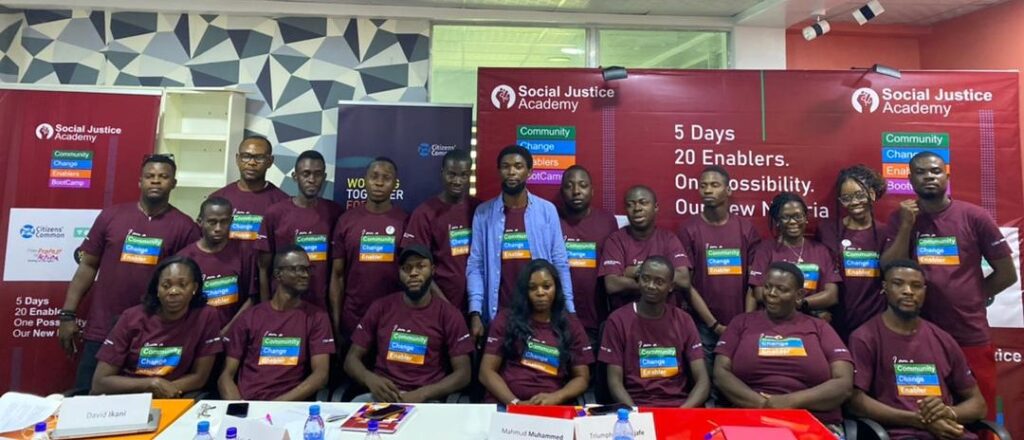
Borderless Africa: Towards a Visa Free Continent for Bolstering Economic Growth
Written by Benita Ezumezu
As one of the most diverse nations in the world, boasting 54 countries with unique markets, Africa could be an economic powerhouse. Yet the nation’s strict visa requirements hamper the free movement of its people, limiting collaboration and innovation. The implementation of a visa-free regime would not only foster unrestricted travel, but also help to transition into a new era of economic prosperity in Africa.
Despite the African Union’s plan to remove visa restrictions for all African citizens by 2018, only five out of fifty-four countries currently allow visa-free entry for all Africans into their countries. Only Seychelles have granted all Africans visa-free entry. The other African countries that have followed suit are Benin, Mauritius, The Gambia, Kenya, and recently Rwanda in 2023.
In those countries which have not adopted visa-free travel, the visa-application process is so hamstrung by bureaucratic red tape that citizens miss out on key economic advancement opportunities.
I have personally missed out on multiple professional development opportunities overseas, and in February 2023, I approached the court in Nigeria for a contravention of my freedom of movement. I am hoping that on the 28th of November 2023, judgement is passed in favor of my quest to ensure that citizens can apply for a passport and get it at the stipulated time. My friend Nnamdi, a German based Nigerian, has yet to get his Nigerian passport since September 2022, 14 months down the line. He is just one among several others who have faced such challenges.
Prior to a trip to Zimbabwe for a professional development program in April 2023, I submitted my visa application to travel into the country. I never heard back, and would have missed the opportunity if the organisers of my program had not had a relationship with the Zimbabwe embassy to help secure my passage. Seven months later, I have still received no response. I am not alone in this.
Meanwhile, U.S and U.K citizens can travel to 36 African countries visa-free or visa on arrival. That Africans seem more tolerant of westerners than they are of other Africans reflects a troubling bias, depriving Africans of their rights to see their own continents.
Although the idea of a borderless Africa is not new, African leaders and citizens realize the undeniable potential that comes with addressing the obstacles that have long stood in the way of the continent’s progress. If African nations were to open their borders to other African citizens, they would increase Africa’s GDP by 18%.
A major step towards realising this goal has been taken with the implementation of the African Continental Free Trade Area (AfCFTA) by the African Union (AU) on January 1, 2021. AfCFTA seeks to promote intra-African trade, economic growth, and employment for all by establishing the largest free trade area in the world. Removing visa restrictions that obstruct the free movement of people and the exchange of services remains the first step in achieving the full potential of the AfCFTA.
To effectively utilize Africa’s enormous human resource base, tourists, businesses, and educators from around Africa must be able to take advantage of more learning opportunities and exchange knowledge across various continents. The potential can be seen in the gradual but significant wave of visa-free entrance rules in recent years. The progress being made in countries that have adopted the visa-free policy has done much to further integrate Africa and raise Africans’ incomes. This includes liberalising trade in services, addressing non-tariff barriers, and further implementing trade facilitation measures on the continent.
This has also sparked a more serious discussion about the potential of integration and connectedness. In a recent international conference, President William Ruto stated: “It is time we realize that having visa restrictions amongst ourselves is working against us.” This mobility would encourage innovation, enhance the education system and generate revenue for the nations by showcasing the historical beauty of diverse African cultures.
Several pressing issues threaten to derail visa-free travel initiatives, ranging from illegal migration to security breaches. Nonetheless, the implementation of efficient border control, legal compliance with regulations supporting interstate travel, as well as collaboration across African countries can allay these worries. Europe’s Schengen visa provides a great illustration of how visa-free travel may be done without compromising high levels of security. E.S. visa is a centralized database that allows single visas for multiple travel countries with common entry requirements within 27 European countries, like Switzerland, Iceland, Norway. Also granting business trips, conferences, tourism within a period of 180 days.
Some encouraging progress has been made in several nations already. To promote knowledge exchange and international trade, as well as a digitally advanced economy, collective effort of African states by prioritising visa-free entry for education, inter-state business, professional development programs, and knowledge exchange conferences for visitors from all around the continent.
To bolster economic growth and promote trade and investment, Africans must take significant strides towards a borderless regime, leveraging the resources and the eagerness of citizens to engage in relevant areas. If we are to see the Africa we dream of, we must be allowed to work together.
This article is an Excerpt from International Affairs Forum
About the Author
Benita Ezumezu
Benita is a social impact professional, researcher committed to the achievement of sustainable development goals in our lifetime. She is the Program Manager at Citizens’ Common Advocacy and leads the management of of ImpactCentral Social Innovation Hub, where she works on technology, law and active citizenship, and social enterprise development projects.
LinkedIn:Benita Ezumezu, Instagram: Mhyssneetah, Twitter: @Benny_ezumezu







Responses